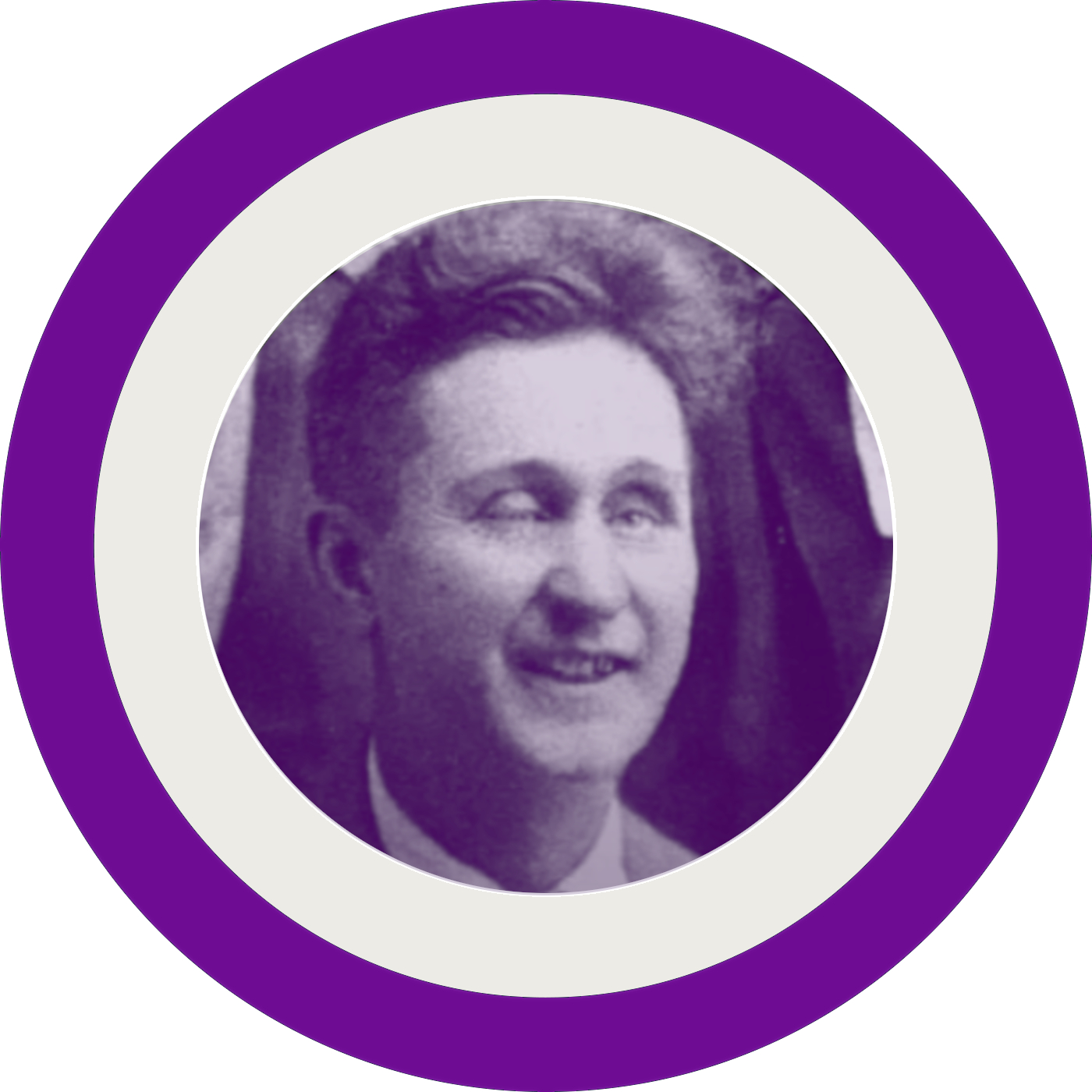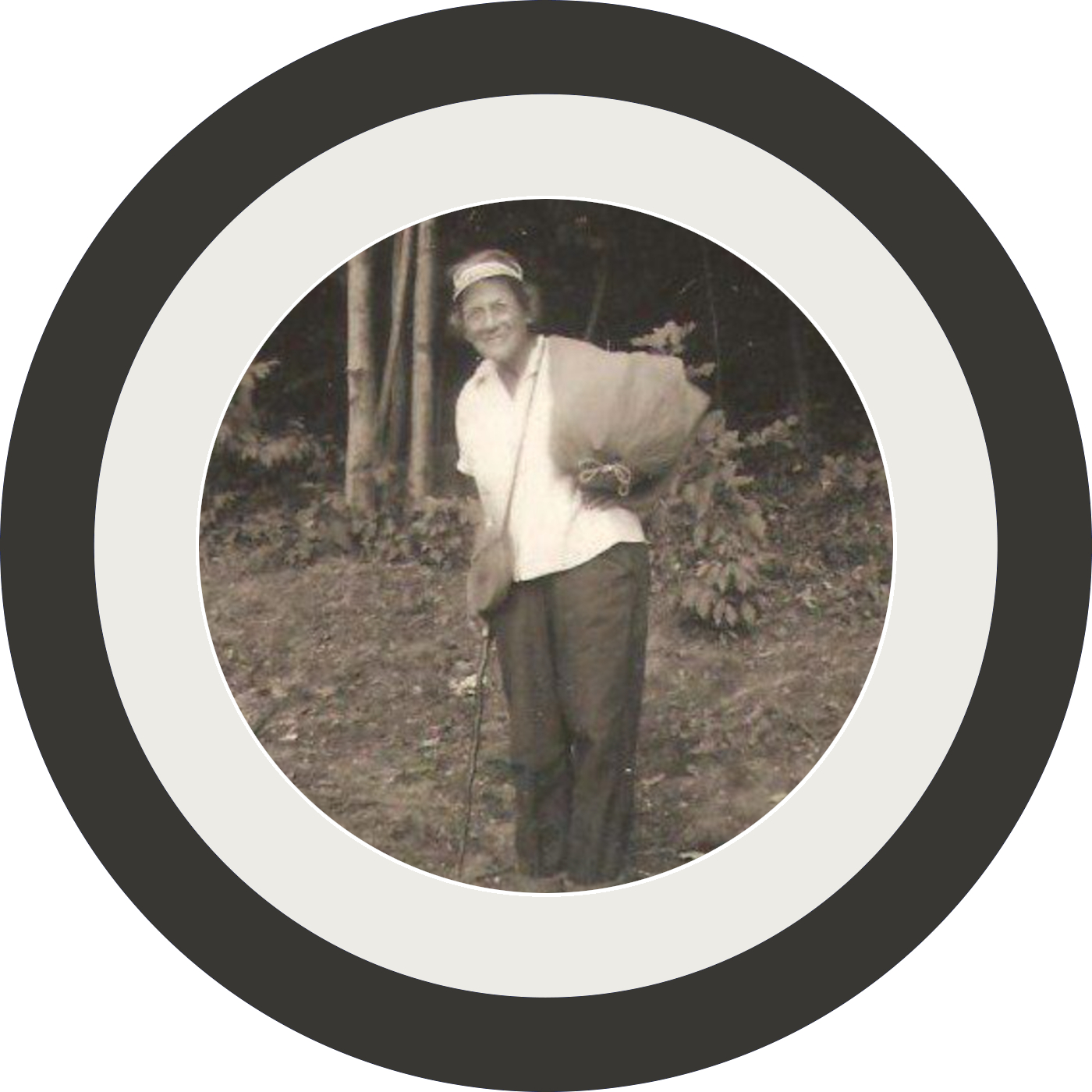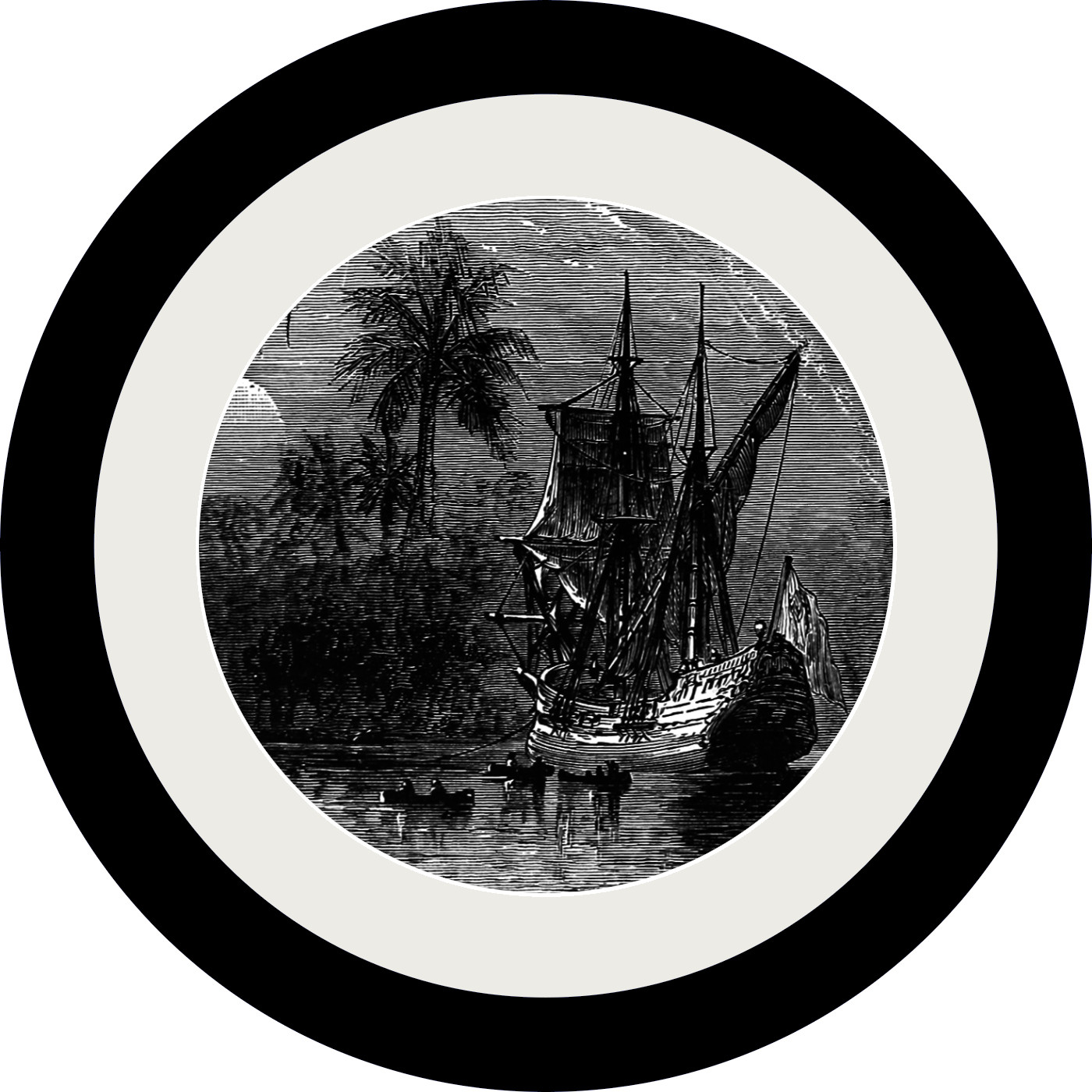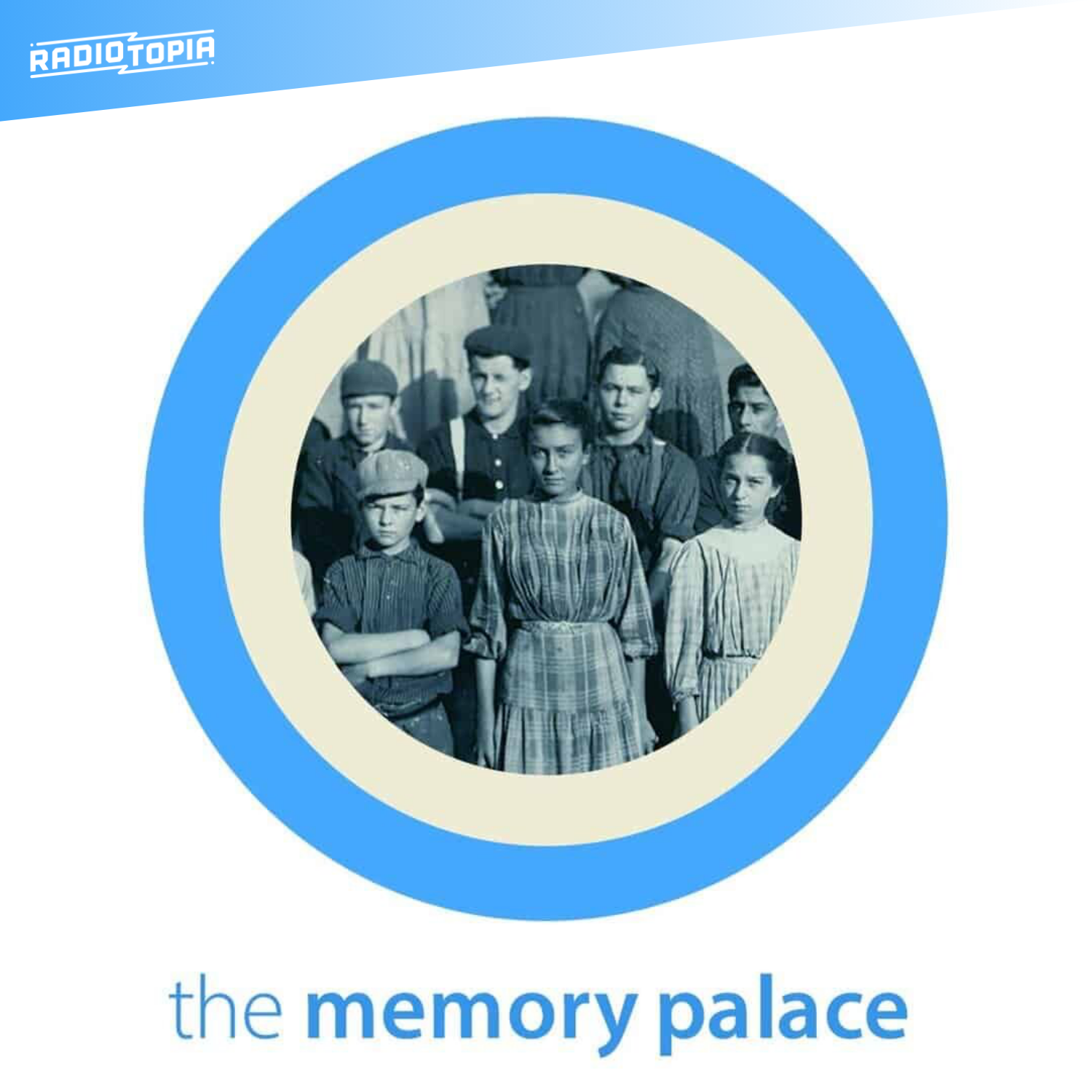Episode 214: Newsboy
The Memory Palace is a proud member of Radiotopia from PRX.
Music
- Un geant dans la mer and Triste soiree III from the score to Marie et les naufrages by the genius, Sebastian Tellier.
- Love is Blue by Jackie Mittoo and the Soul Vendors.
- Rocky Passage by Jeremiah Chiu and Marta Sofia Honer
- Morris Visits Dr. Pratt from John Barry's score to The Wrong Box
- Adios Muchachos from Andre Popp
- Moonlight in Vermont from the great Dorothy Ashby.
- Midnight Moon by The Portland Cello Project
- Dance PM by Hiroshi Yoshimura
- And we hear Blind Andy Jenkins' "Floyd Collins in Sand Cave" followed by Vernon Dalhart doing the same song under the name, "The Death of Floyd Collins." We also hear Jimmy Osbourne do Andy's, "The Death of Little Kathy Fiscus."
Notes
- I have a note in my years-long running list of possible story ideas that says, "event songs," but I could never remember why. Then I was reading Charles Hirschberg and Mark Zwonitzer's, Will You Miss me When I'm Gone?: The Carter Family & Their Legacy in American Music and was reminded of Andy's story (that book is great).
- I also recommend the always-useful, Country Music USA, by Bill C. Malone for more on Andy and his era as well as Creating Country Music: Fabricating Authenticity by Richard A. Peterson.
- If you want more about poor Floyd Collins, you could turn to Robert K. Murray and Roger W. Bruckner's, Trapped!: The Story of Floyd Collins.
Learn about your ad choices: dovetail.prx.org/ad-choices
Press play and read along
Transcript
Speaker 1 Support for this podcast and the following message come from Sutter Health.
Speaker 1 From life-changing transplants to high blood pressure care, Sutter's team of doctors, surgeons, and nurses never miss a beat.
Speaker 1 And with cardiac specialty centers located in the community, patients can find personalized heart care that's close to home. Learn more at Sutterhealth.org.
Speaker 2 This episode of Memory Palace is brought to you by LifeKid. When you're a kid, you need all sorts of help, learning your ABCs, tying your shoes.
Speaker 2 Then you become a teenager and a young adult, and if you are like I was, you need all sorts of help, but you are hardly asking for or accepting any of it.
Speaker 2 Then you get older, you start looking around and thinking there has got to be a better or faster or safer way to do this thing, whatever that thing might be.
Speaker 2 And while you are looking around, you will notice that there's a ton of nonsense. There are a lot of quick fixes, a lot of just mumbo-jumbo.
Speaker 2 But then there's LifeKit, a podcast from NPR, where you can find thoughtful, expert-guided ideas and techniques about tackling issues in this thing we call Life.
Speaker 2 LifeKit delivers strategies to help you make meaningful, sustainable change. And the show is fun.
Speaker 2 You're flipping through episodes and bopping around thinking, yeah, I do kind of want to know what this whole thing is with seed oils and hear from people who really know and sort out the science from the hype.
Speaker 2 And then you put it on, and it is delightful and informative. And then you're kind of idly listening to this one about how you can avoid buying counterfeit products online.
Speaker 2 And you're like, yeah, I do that technique. And yeah, I know that one too.
Speaker 2 And yeah sure that one i'm no dummy but then you hear a couple more and you're like oh shoot yeah i almost fell for that yesterday and oh yeah i need that one for my back pocket life kit isn't just another podcast about self-improvement it is about understanding how to live a better life starting now listen now to the life kit podcast from npr
Speaker 2 This is the Memory Palace. I'm Nate DeMayo.
Speaker 2 This isn't the story about the man in the cave, as hard as he had it, poor Floyd Collins, a 37-year-old man in cave country in central Kentucky.
Speaker 2 He had spent so much of his childhood underground, looking for arrowheads and other artifacts in the caves beneath his family's farm.
Speaker 2 He'd feel cool air coming up from a crack in the ground and shimmy down and explore the twisting passages and crystal caverns. A country boy in a Jules Verne landscape.
Speaker 2 As he grew, he would find himself on the front lines of the cave wars, which is not as cool as that sounds, but still quite a story, story, though it is not this story.
Speaker 2 It was a time when landowners and spelunkers were in this heated competition to find and map and ultimately own and exploit the vast network of caves, bringing tourists and their tourist dollars.
Speaker 2 This was the 19 teens and 20s, and Floyd Collins found a cave. A big one.
Speaker 2 Called it Great Crystal Cave, which was a good and appropriate name.
Speaker 2 The kind that would appeal to the traveler driving about the countryside, but Collins' cave was a bit too far into the countryside, and he couldn't figure out how to get people to make the trip.
Speaker 2 And so he kept looking for other caves, ones more convenient to the bigger roads that were being built then to accommodate the cars people were just starting to buy.
Speaker 2 And he found one, another good one, not quite as spectacular, but closer to the road and location, location, location. And so he went about trying to figure out the best entry point.
Speaker 2 So he could dig a nice opening suitable for non-spelunkers, with a good place out front for a parking lot, and a ticket booth, gift shop, whatever. And one day he is down in the cave and he gets stuck
Speaker 2 for days.
Speaker 2 A nightmare that I won't dwell upon because I don't need to because you get it.
Speaker 2 You have probably thought that sort of scenario through at one point in your life, but it is dark, it is cold, and he's trapped.
Speaker 2 And people notice he's gone.
Speaker 2 His friends, his fiancée Alma, Doe-Eyed, reporters would put it when they assembled at the cavemouth with the would-be rescuers heading down into the dark to find and save Floyd Collins.
Speaker 2 And they are there, the papers and eventually camera people from the newsreels, also knew then, radio men too, because they knew that this is a nightmare, that this is a universal fear, this is a story to cover, it will connect, and they do, and it does.
Speaker 2 The search for Floyd Collins, trapped in that cave, becomes a national news story, one of the first to unfold in something like real time, with people from coast to coast waiting for the latest wire report.
Speaker 2 Will they find this man?
Speaker 2 And when they do, wedged there deep in the dark ground below, will they save him? Will he be reunited with that doe-eyed girl?
Speaker 2 Will his prayers, the ones he related to a cub reporter named Skeets Miller of the Louisville Courier Journal, who at 5'5 ⁇ , a buck 17, was the only person small enough to crawl close enough to talk to poor Floyd Collins and hear his prayers?
Speaker 2 Would they be answered? The story went on for days. Hundreds of people gathered at the cave entrance and kept vigil, even after they lost contact with him.
Speaker 2 You see, it was later determined that all those people, the fires they made to keep themselves warm there in the middle of winter, the idling cars, the electrical equipment the rescuers were using to try and get to Collins, melted ice in the cave, caused a wall to collapse, and left him behind it.
Speaker 2 And he died after 14 days. Took folks two months to find a way to his lifeless body.
Speaker 2
But this story isn't about him. Nor is it about Lee Bible either.
Heck of a name, Lee Bible. Another son of farmers.
He's from Tennessee.
Speaker 2 He found his calling fixing tractors and anything with wheels and engines before leaving the farm for the garage. He became an auto mechanic and apparently a great one.
Speaker 2 He took off for Daytona Beach where people were, as they do still, gathering to try to make cars go faster and faster.
Speaker 2 And he worked on a car called the Triplex Special, built to be the fastest in the world. He himself was a heck of a driver, winning all sorts of dirt track races in the area.
Speaker 2 And so when it was time to test out the Triplex Special and take a shot at the land speed record, he was tapped to take the wheel. Its regular driver thought the conditions weren't safe enough.
Speaker 2
Lee Bible was 43 years old. There's a picture of him on the morning of the test.
His face is handsome and sandblasted and tough.
Speaker 2 A Kirkid smile and eyes that seemed to be beaming at the thought of what he was about to do. Become the fastest man alive.
Speaker 2 There's film too, a scrap of it, of the triple X special tearing down the hard-packed sand at the edge of the water at Ormond Beach, where his speed will top out at 200 miles an hour.
Speaker 2 Short of the record, but he might have gotten there if this car hadn't run off the track and careened into a sand dune.
Speaker 2 and rolled and rolled and killed the cameraman who'd come to film his run and killed Lee Bible too, though this isn't his story.
Speaker 2 Nor is it the story of Frank Dupree, blacksmith's son who shot the security guard who caught him stealing a diamond ring for his girlfriend and then went on the run only to be caught and hung.
Speaker 2 Nor of Ben Duberry, a train engineer determined to make it to Atlanta on time, but who pushed the engine too hard as he rounded a corner. And that was the end of him.
Speaker 2 This is the story about a man who got a phone call after those men met their ends. His name was Andy Jenkins.
Speaker 2 He was born poor in rural Georgia in 1885 and his life took a turn before it had barely begun.
Speaker 2 He got an eye infection when he was a baby and the doctor prescribed some drops but the pharmacist messed up the prescription somehow and whatever he put in there should never have gone into Andy's eyes and he went blind.
Speaker 2
And so the world would come to him through different means. He fell in love with sermons and songs.
His parents filled his young life with them.
Speaker 2
And they put instruments in his hands. And he found his way to playing them by feel and by ear.
Piano, guitar, banjo, whatever he put his fingers to.
Speaker 2 But there wasn't much that people gave people who couldn't see to do with those fingers when they grew up, when it came to proper employment.
Speaker 2 So as a young teenager, he took to the street corners of Atlanta where he would sell newspapers and sing praise songs. and head home at night with whatever had been tossed in his hat that day.
Speaker 2
He had a good voice. Everyone in his family did.
And they were invited to sing live on the radio. He was the star of the Jenkins family's sacred singers.
Speaker 2
Though it might not have been his voice that made him stand out. Could have just been his stage name.
Lined Andy Jenkins, the newsboy evangelist.
Speaker 2 He found a fan and a man named Polk Brockman. It was a time for good names.
Speaker 2 Polk Brockman was a regional salesman for OK, a record company out of New York City that had recently found success targeting niche markets around the country.
Speaker 2 They would sell polka records to Polish immigrants in the Midwest, klezmer music to the Jews of the Lower East Side. Some of the first jazz records and blues records were on OK.
Speaker 2 Regional styles captured for posterity for the first time, finding audiences near and far in the early 1920s.
Speaker 2 And Brockman was in Atlanta figuring out how to sell white Southern music to white Southerners. And he liked what he heard from the Jenkins family sacred singers.
Speaker 2 And when he brought them in to record some singles, Brockman Brockman realized that Andy had exactly what he was looking for.
Speaker 2 It wasn't that Andy Jenkins was the best singer, wasn't the best musician either, but he could write a song.
Speaker 2 And while there was money to be made in making records of fiddle players running through the old familiar reels that had made their way from Ireland and Scotland, or troubadour singing ballads brought from Britain, Brockman couldn't copyright those.
Speaker 2 And so he started buying songs from blind Andy Jenkins. who could turn out gospel tunes at a remarkable rate.
Speaker 2 All of that vamping on street corners while hawking newspapers to passers-by was paying off. And they did okay, the praise songs.
Speaker 2 But then Brockman hit on an idea that would turn Andy into a hit-making machine. It was Polk Brockman at the other end of the line when the phone rang in Andy Jenkins' apartment in February of 1925.
Speaker 2 Brockman was down in Florida getting some sun when he read about the fate of poor Andy Collins in that dark cave. He thought it might make a good subject for a song.
Speaker 2 Andy hung up the phone and picked up his guitar, Sent one of his sisters down to the corner to pick up a copy of the paper.
Speaker 2 And she came back and read him the front-page news out of Cave City, Kentucky. And her brother wrote this song.
Speaker 2 loneliness.
Speaker 2 Took him 45 minutes.
Speaker 2 A bit longer for his sister to work out the arrangements and put them down on paper for him. But a few weeks later, there were nearly half a dozen versions of the tune out in the world.
Speaker 2 This is Andy's version.
Speaker 2 Didn't sell much. But when a guy named Vernon Delhart, one of the biggest acts in the Powerhouse Victor label, did this version,
Speaker 2 it sold more than 600,000 copies. And thus began the Blind Newsboy Evangelist's career as a songwriter who told people the news.
Speaker 2 The pioneer and the foremost practitioner of the event song.
Speaker 2 Something would happen somewhere. A train derailment, a land speed record attempt gone awry, a shootout, a factory fire, a kidnapping, and Andy Jenkins' phone would ring, and he'd get to work.
Speaker 2 Nary, a mine could collapse, nor bridge could fail, nor marriage turn murderous, nor innocent child meet his or her untimely end, without Andy Jenkins turning it into a song.
Speaker 2 He did this dozens of times in 1925, never quite matching the success of his first hit about poor Floyd Collins.
Speaker 2 These event songs were a flash in the pan, kept Andy busy for about a year, and then it was done.
Speaker 2 Every now and then, something would hit the news and he'd try again, but none of them made it big.
Speaker 2 He retired from the rip-from-the-headlines business for a couple of decades
Speaker 2 until giving it one last shot with a tear jerker sung by Jimmy Osborne.
Speaker 2 On April the 8th, the year 49,
Speaker 2 death claimed a little child, so pure and so kind.
Speaker 2 Kathy, they called her, met her doom that day.
Speaker 2 I know it was God that called her away.
Speaker 2
Andy Jenkins saw very little money from any of this. He'd get a flat fee of $25, which wasn't nothing, but wasn't fair.
Brockman owned the publishing rights.
Speaker 2 In the history of the record business, he is a familiar kind of villain, with a talent for exploiting talent. Some historians compare him to a strip mining operation.
Speaker 2 He'd come in, work a songwriter till they had nothing left, take the money, and move on.
Speaker 2 But Andy Jenkins always had something.
Speaker 2
He had songs in him. Long after Polk Brockman had lost interest in them.
He would keep preaching the gospel, keep writing praise songs, and singing them out loud on records, on the radio.
Speaker 2 Some of those songs lived on long after the memory of Floyd Collins faded.
Speaker 2 You can still hear choirs singing his God put a rainbow in the sky from time to time.
Speaker 2 He died at 71 in a car accident in 1957 outside of Thomaston, Georgia.
Speaker 2 But there was no blind Andy Jenkins around anymore to write a song about it.
Speaker 2 This episode of The Memory Palace was written and produced by me, Nate DeMayo, in March of 2024.
Speaker 2 The show is a proud member of Radiotopia, a network of independently owned and operated listener-supported podcasts from PRX, a not-for-profit public media company.
Speaker 2 If you ever want to drop me a line, you can do so at nate at thememorypalace.org.
Speaker 2 You can follow me on Twitter at thememory palace, on Facebook at TheMemory Palace, and on Instagram at threads
Speaker 2 at thememory palace podcast.
Speaker 2 At the end of the next episode, I will be
Speaker 2 encouraging you to subscribe to a newsletter. I was expecting to do it this time, but I cracked a tooth, and it's been miserable.
Speaker 2 It's been a week of dental appointments and
Speaker 2 occasionally extraordinary pain, so I didn't get around to that. But I was glad to get this story to you, and so I will get that up and running next time, barring further catastrophe.
Speaker 2 If only Andy Jenkins could write the ballad of my crack tooth, I will talk to you guys again.
Speaker 2 Radio token
Speaker 2 from PRX.





